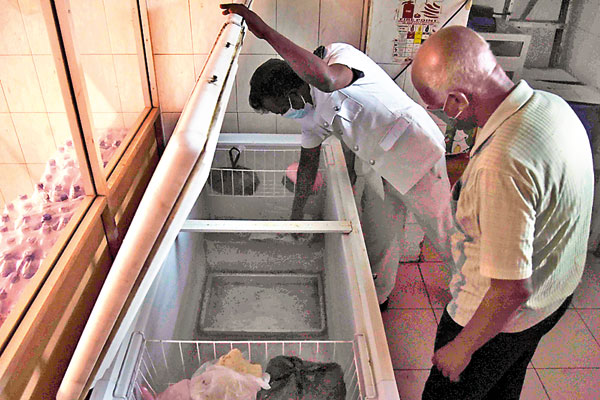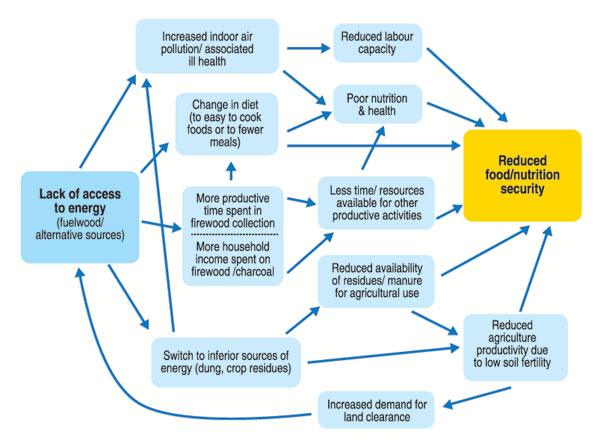News
SLMA on food safety and food security during power outages
View(s):Crucially relevant was a recent webinar organised by the Sri Lanka Medical Association (SLMA), for it dealt with a searing issue faced by people – food safety and food security when there are power outages.
Food safety is the handling, storing and preparation of food to prevent infection and making sure that food has enough nutrients to provide a healthy diet, said SLMA’s Chairperson of the Non-Communicable Disease (NCD) sub-committee, Dr. Renuka Jayatissa.
Food security, meanwhile, is an individual’s ability to access food that is nutritious and sufficient in quantity meeting that person’s food preferences and dietary needs for an active and healthy lifestyle, she said.

Power cuts pose a threat to food safety due to the average temperature of a freezer or a refrigerator being affected
Dealing with threats to food safety during a power outage, the Health Ministry’s Deputy Director General (DDG – Environmental & Occupational Health), Dr. Tilak Siriwardena said that from ‘farm to factory to fork’, food products may encounter a number of health hazards along their journey through the supply chain.
“Food processing, packing, transport, storage, display for sale etc., need power. A price hike in fuel and unavailability of power will lead to power outages which, in turn, threaten food safety,” she explained.
She pointed out that then food producers would engage in legal and illegal, ethical and unethical activities to face such conditions; there could be a threat to food safety due to the average temperature of a freezer or a refrigerator being affected; sellers may promote the sale of food affected by power outages; and people may eat affected home-made food without realizing the threat.
Dr. Siriwardena suggested the following household actions during power cuts:
- Keeping the refrigerator closed or limiting the times when the fridge is opened.
- Planning the storage of food on the different shelves and displaying the plan on the refrigerator door so that there is no need to search for something for a long while.
- Deciding what to get out or put into the fridge before opening it to minimise the duration it is kept open and also the frequency
- Refrigerating cooked food within 2 hours of cooking, if not discarding the food after 4 hours. As such, there is a need to plan the cooking.
- Using the freezer to store food, instead of the refrigerator.
- Storing water bottles in the refrigerator compartment.

For retail traders/restaurants/hotels:
- The availability of a refrigerator is important. There is also the need for a generator.
- Keeping the refrigerator closed or minimal opening during power cuts.
- Storing required stocks only.
- Not adding unpermitted preservatives but using approved methods only.
- Storing cooked extra food in the refrigerator within 2 hours of cooking or discarding it after 4 hours.
For wholesale traders/producers:
- They need refrigerators and cold stores while the use of a generator is needed during power cuts.
- Keeping the refrigerator/cold room closed or minimizing their opening during the power cuts.
- Not adding unpermitted preservatives but using approved preservation methods only.
- Monitoring the temperature where possible.
Tips on power-saving:
- Eat foods such as carrots, beans, cabbage, etc., raw as they do not need to be cooked. These foods are also a boon in the prevention of NCDs.
- Use the one-pot cooking method.
SLMA’s President-elect Dr. Vinya Ariyaratne explained food security during power outages as well as in an economic crisis. He said that because food has to be cooked for it to be palatable and safe, food security cannot be guaranteed if there is no access to energy to cook it.
A fuel scarcity can potentially affect cooking practices and dietary choices. It can result in reduced cooking times, skipping of meals and a switch to foods that are less fuel demanding, he said, explaining that some of the principal food crops in developing countries are palatable or even fully digestible only when cooked. This is while foods such as beans that are highly nutritious are more fuel demanding. Therefore, the protein intake can get lowered when alternative faster-cooking foods are chosen, leading to poorer nutritional balance.
“The unavailability of fuel for cooking can therefore influence the type, quantity and quality of the food consumed and its ability to be digested and could be a cause of malnutrition. A fuel scarcity may also force households to spend less time in productive and income-generating activities including agriculture and food production. The meagre income may be spent on purchasing fuelwood rather than food,” he added.
This important webinar was held under the guidance of SLMA President Prof. Samath Dharmaratne.
The best way to say that you found the home of your dreams is by finding it on Hitad.lk. We have listings for apartments for sale or rent in Sri Lanka, no matter what locale you're looking for! Whether you live in Colombo, Galle, Kandy, Matara, Jaffna and more - we've got them all!

